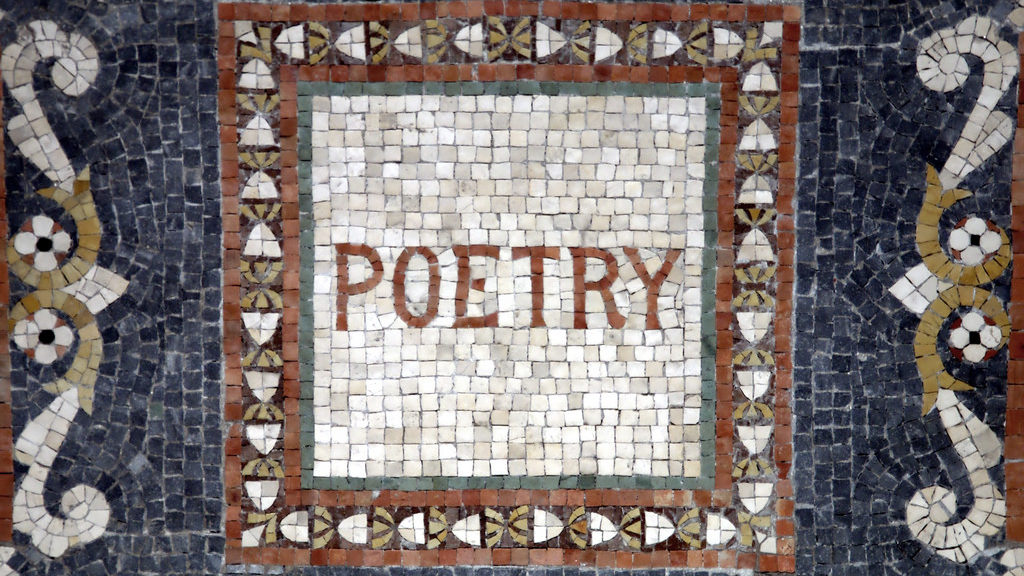By Dimitris Tzoytzoyrakos
In the past several years, nothing has made as much of an impact onto the poetry world as Rupi Kaur’s Milk and Honey. Having sold over one million copies, her collection of poems is actively being discussed, quoted, and plastered all over social media.
I will preface what I am about to say by stating that my opinion is entirely subjective, as it is with all art.
I believe the extreme popularity of Milk and Honey, while partly due to its feminist subject matter, owes much more of its success to its simplistic, minimalist, and easily-accessible form of craftsmanship.
It is never a good idea to say that art should ever be anything. However, one of the great beauties of poetry is its enigmatic or multi-layered nature of words. Unlike music, painting, or film, poetry is the art of words and strictly words. This limitation grants a heavy burden on the poet, as the words that they choose to construct their work could inhabit a territory of many possible meanings, bringing the poem to a certain degree of subjectivity to the reader. This gives the reader a new responsibility: to interpret the poem.
Interpretation is the root of discussion, argument, and understanding in art. It is what brings readers together to expand each other’s field of perspective and build upon their methods of reaching it.
Rupi Kaur’s language in Milk and Honey (for almost its entirety) does not attempt to suggest multiple meanings or take on an interpretive nature. Rather, her poems and their subject matter are very direct and on-the-nose, leaving the message of her poems out in the open for all to see and to collectively understand.
This of course could be a deliberate choice on her end, but it is easy to see how this style of writing limits the discussions to be had on her poetry, as far as their meaning is concerned.
Kaur’s admiration for minimalism does not end there (not to diss on minimalism. There are remarkable minimalist writers such as Samuel Beckett, Harold Pinter, and Raymond Carver, to name a bare few.) Her poems never exceed a page (and seldom even pass the halfway point), she never capitalizes letters, and all of her poetry has a blank white background with occasional line-sketches done by Kaur herself. This makes her poems easy to understand and easier to look at, creating a unifying and pleasing aesthetic for the reader.
The marrying of easy-to-understand language and stylistic minimal structure wraps Milk and Honey in a desirable and ‘trendy’ package. This is perfect for the average young adult living in USA 2017 because it provides a loophole for the non-stop, quick-paced nature of the modern culture. Unlike the Victorian Era, where the average citizen had a great deal of free time, allowing for the reading of thick, dense literature, the modern day is suffocating under the stress and anxiety of a society that demands full-time work hours and constant studying. This creates a giant shift in the form of entertainment. Where once it was desirable for a deep, close reading and analysis of a work of art, it has now become standard for simple, accessible, and instantly gratifying entertainment. This can be seen in mainstream movies (Marvel, DC), social media (Snapchat, Instagram, Vine), literature (Hunger Games, The Fault in our Stars), and of course, poetry.
Rupi Kaur’s Milk and Honey is the perfect book for citizens of USA today. It is transparent in its subject matter, minimal in its structure, stylistic in its composition, and elevates itself even higher with impactful drawings.
As I said before, art is subjective. Art shouldn’t be anything. Art does not owe intellect, sophistication, simplicity, or anything to its audience. Art is simply what the artist chooses to create and put out.
That being said, when it comes to feminist poetry, I’d rather spend an hour to read a single poem by Virginia Woolf, Sylvia Plath, or Adrienne Rich, than to spend an hour reading Milk and Honey.
Featured image by takomabibelot on Flickr
Dimitris is an English major with an emphasis in Creative Writing at USC. On the side, he indulges in film production, music composition, piano performance, and directing theatre. Dimitri has acquired a diverse teaching background, which includes two years of teaching K-12 Music and Theatre at Adelphia Classical Academy, private piano lessons, Greek school, Greek immersion camp, and acting lessons. His highest values are in great conversation, friendship, and family.

